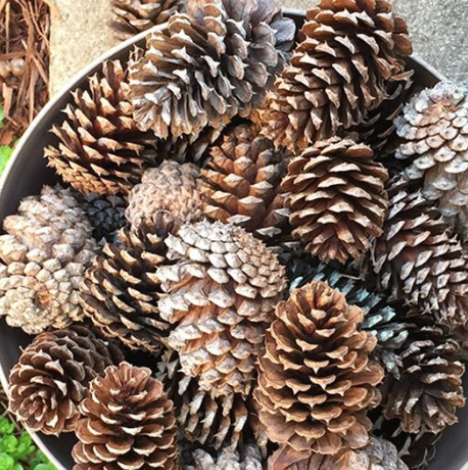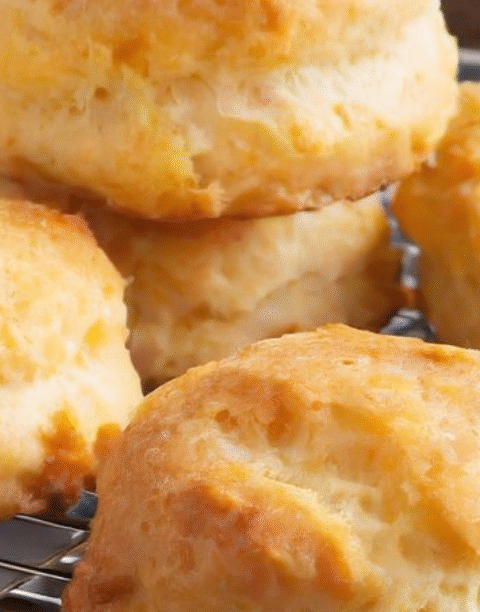7 Smart Reasons to Use Pinecones in Planters — The Gardener’s Secret Weapon 🌲
Looking for a natural, affordable, and sustainable way to supercharge your container garden? You may not need to look further than your backyard. Pinecones — yes, those woody, aromatic cones that fall from pine trees — are more than just forest litter or rustic decorations.
When used in pots and planters, pinecones improve drainage, reduce soil costs, and even aerate roots naturally. If you’re practicing organic gardening, pinecones offer a biodegradable alternative to plastic fillers or synthetic materials.
In this comprehensive guide, we’ll explore how and why you should use pinecones in your planters, the pros and cons, what plants benefit most, expert insights, and frequently asked questions.
🌿 What Are Pinecones and Why Do They Work in Planters?
Pinecones are the seed-bearing structures of pine trees. Each cone consists of overlapping woody scales and a lightweight core filled with air pockets. These natural features make pinecones perfect for improving pot conditions.
Key Properties of Pinecones
- ✅ Lightweight but strong
- ✅ Porous and breathable
- ✅ pH-neutral and chemical-free
- ✅ Slow to decompose, lasting multiple seasons
- ✅ Free and naturally abundant
1. 🚿 Improve Drainage Without Adding Weight
Poor drainage is one of the most common problems in container gardening. Stagnant water leads to root rot, yellowing leaves, and fungal issues. Pinecones create gaps at the pot’s base, allowing water to flow freely.
Ideal For: Rooftop gardens, hanging baskets, or moveable pots.
Expert Insight: “Pinecones are the best-kept secret for drainage in lightweight containers,” says Dr. Leila Nour, soil biologist at EcoGarden Institute.
Tip: Layer pinecones 2–4 inches deep at the bottom of the pot before adding soil.
2. 💰 Save on Potting Soil
Pinecones act as natural filler in deep containers, reducing the need for expensive potting mix in areas where roots don’t reach. You can save up to 50% on soil in large decorative pots.
Perfect For:
- Annual flowers 🌸
- Succulents and cacti 🌵
- Shallow-rooted herbs 🌿
Bonus: Reduces pot weight, making containers easier to move.
3. 🌬️ Increase Airflow and Root Oxygenation
Oxygen is crucial for healthy root development. The air gaps between pinecones improve soil aeration, reducing compaction and encouraging vigorous root growth.
Tip: Especially beneficial for herbs like basil, mint, or thyme that thrive in light, airy soil.
4. 🌱 Slowly Decomposes to Enrich Soil
Unlike plastic fillers, pinecones break down over time — albeit slowly — adding organic matter and carbon to the soil. This supports microbial activity and enhances long-term soil structure.
Benefits of Slow Decomposition
- Enhances microbial life 🦠
- Boosts carbon content ♻️
- Supports long-term soil fertility 🌾
5. 🌍 Eco-Friendly & Chemical-Free
Many gardeners use Styrofoam, plastic, or broken pots as base filler — materials that often end up in landfills and may leach toxins. Pinecones are biodegradable, free, and compostable.
Bonus: Safe for growing edible plants such as tomatoes, mint, or lettuce.
6. 🐜 Naturally Deter Pests and Fungi
Thanks to their texture and pine resin, pinecones create a less hospitable environment for fungus gnats, slugs, and mold. Cedar cones in particular may repel soft-bodied insects naturally.
Note: While not a standalone pest solution, pinecones help prevent infestation in wet soil bases.
7. 🌸 Suitable for Indoor and Outdoor Use
Whether you’re potting basil in your kitchen or pansies on the patio, pinecones work in nearly every setting.
Best Uses:
- Indoor houseplants 🪴
- Balcony herb gardens 🌿
- Self-watering planters 💧
- Pots without drainage holes 🚫
🛠️ How to Use Pinecones in Your Planter: Step-by-Step
Step 1: Collect and Prepare Pinecones
- Gather fallen pinecones in late summer or fall.
- Shake off debris and insects.
- Optional: Bake at 200°F (93°C) for 30 minutes to sterilize and open cones.
Step 2: Add to Planter Bottom
- Layer 2–4 inches deep.
- Use large pinecones first for maximum spacing and airflow.
Step 3: Optional Fabric Barrier
Add landscape fabric or burlap on top of the pinecones to prevent soil from settling into the gaps.
Step 4: Fill and Plant
- Add potting mix as usual.
- Water thoroughly and observe how quickly water drains.
🌼 Best Plants to Pair with Pinecones
Ideal Choices:
- Herbs: oregano, rosemary, chives, mint
- Greens: arugula, lettuce, spinach
- Annual flowers: pansies, petunias, marigolds
- Succulents and cacti
- Houseplants: pothos, spider plant, philodendron
Avoid Pinecones With:
- Deep-rooted veggies like carrots 🥕
- Plants needing saturated soil (e.g., swamp hibiscus)
- Heavy fruiters in large pots unless in shallow bottom layer only
📋 Table: Benefits of Using Pinecones in Planters
| Feature | Impact | Ideal Use |
|---|---|---|
| Drainage | Prevents root rot | Balcony, rooftop, indoor |
| Weight | Makes containers lighter | Hanging or moveable pots |
| Soil Savings | Reduces potting mix needs by 30–50% | Large decorative pots |
| Aeration | Improves root oxygen | Compact root crops |
| Decomposition | Adds organic carbon | Long-term plantings |
| Eco-friendliness | 100% biodegradable | Organic gardens |
| Pest Resistance | Discourages mold and gnats | Indoor pots |
❓ Top 10 FAQs About Using Pinecones in Planters
- Will pinecones rot?
No, they decompose slowly and enrich soil as they break down. - Should I sterilize pinecones?
Yes, especially for indoor use. Bake or rinse with vinegar water. - Can I reuse pinecones seasonally?
Yes! Most last 1–2 seasons outdoors, even longer indoors. - Will pinecones attract bugs?
Not if sterilized. In fact, they may repel some pests naturally. - Are pinecones good for herbs?
Absolutely — especially for mint, thyme, and oregano. - What if I have no drainage hole?
Use pinecones + charcoal to mimic drainage below soil. - Can I compost old pinecones?
Yes, crush or shred them first to speed up decomposition. - Are pinecones safe for veggies?
Yes, they’re chemical-free and safe for edible plants. - What plants don’t like pinecones?
Root-deep veggies and water-logged species. - Do pinecones change soil pH?
No, they’re pH-neutral and stable.
🌿 Final Thoughts: A Rustic Solution That Works
Pinecones aren’t just whimsical seasonal décor — they’re practical garden tools that align with eco-friendly gardening. Whether you’re saving on soil, improving drainage, or adding structure, these organic treasures help your plants thrive naturally.
Try adding pinecones to your next planter — your plants will thank you. 🌱






